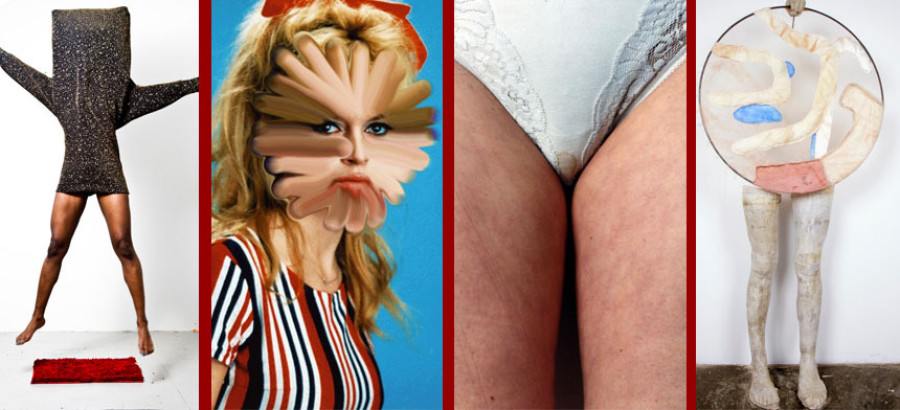
In March, artist and poet Rupi Kaur uploaded an image to Instagram, depicting Kaur curled up on the bed in sweats and a t-shirt. She's also on her period, and the blood has dripped through her pants onto the sheets. The image was flagged and removed from Instagram -- twice.
thank you Instagram for providing me with the exact response my work was created to critique. you deleted my photo twice...
Posted by Rupi Kaur on Wednesday, March 25, 2015
Kaur responded to the act of censorship on Facebook and Tumblr; her posts on both of these platforms were shared over 11,000 times. "Their patriarchy is leaking. Their misogyny is leaking. We will not be censored," she wrote. Instagram eventually responded, explaining the image was "accidentally removed" -- twice.
The incident speaks to a larger issue, the way women's bodies are sexualized and silenced, shaved and shamed by the mainstream media. We reached out to a group of feminist artists we admire, all of whom use their work to address in some way this so-called "feminine grotesque" -- the conversion of the female body into something monstrous, abnormal, obscene. The artists graciously shared their responses to Kaur's image, and the wider problems surrounding women's bodies online.
Below, 14 other artists respond to the way women's bodies are still judged and muffled in 2015:
1. Ellie Hunter
"It's interesting that Kuar's image would 'violate' Instagram's terms and conditions, when women and women's bodies are violated on social media thousands of times every day."
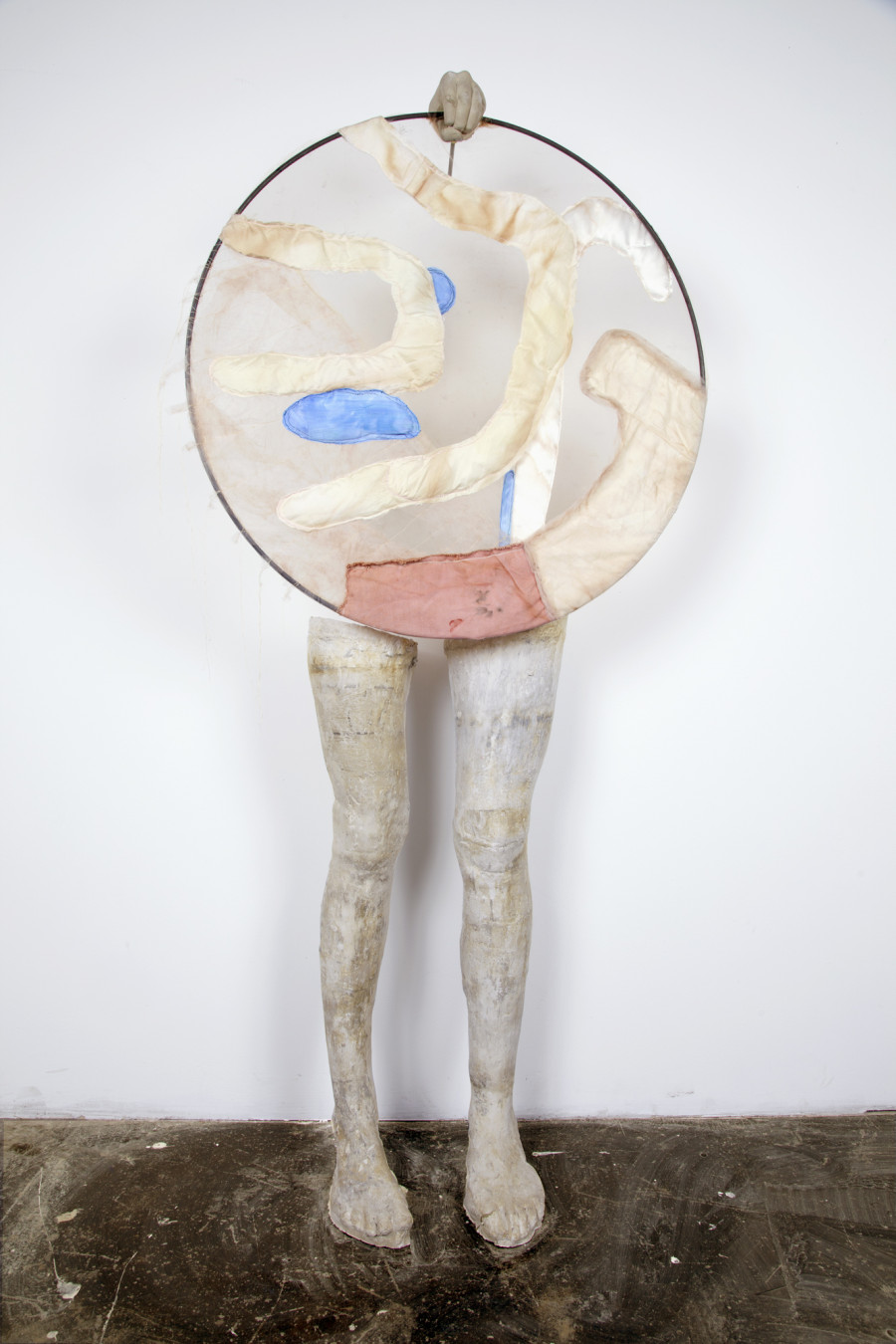
Ruin Aesthetic, 2014, 60 x 28 x 12 inches, Cement, steel rod, tulle, fabric, and natural dye
"The online world is constantly morphing and updating, and creating new systems of power along the way. While it's positive that Kuar was able to rally enough activists for Instagram to restore her photo, it's so typical of Instagram's hetero-fascist technocracy to sidestep the issue with the excuse that it's removal was a mistake. I'm interested in work that's exploring the so called 'feminine grotesque' as it addresses everyday, low-level anxiety I feel about my inherent attributes as a human woman, despite my constant efforts to counteract this shame. For me, exposing these tensions is a dual gesture of intimacy and of aggression or activism."
"There is a clear message here: cover it up, erase it, shut up, be pretty and clean, don’t show us you are a human woman. In fact, we prefer you were a hairless, ageless, oh-so-cool-sexy, tiny, easily-manipulated, shiny machine-object, not a visceral, bleeding, odor-and-noise-and-fluids-producing, food-needing, bathroom-going, valuable, capable, ambitious, smart, emotion-and pain-feeling, gloriously human being."
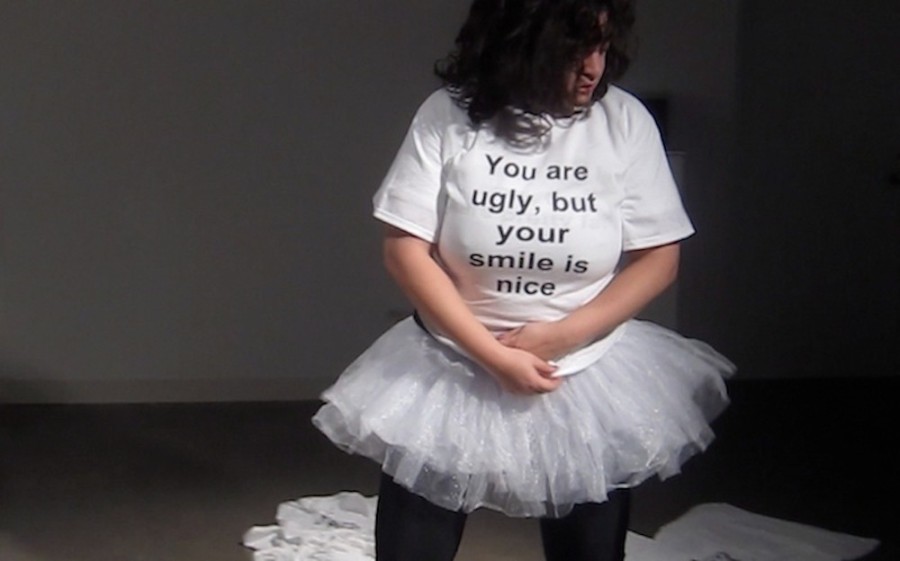
Katya Grokhovsky, One Fine Day, 2014, photo Yan Gi Cheng
"The issue of censorship of women’s bodies in general makes me VERY ANGRY. Bear with me, as I clear my thoughts, whilst scampering around the block, amidst the smoke fumes spattering out of my scorching volcano of fury, quickly filling up my breathing space. The persistent, relentless, frightening removal of the reality of women’s bodies by the media and society at large is simply another tool of misogynistic oppression. Thank you for your work, Rupi Kaur. This is important, and we need to consistently bring this problem to light. Ruthlessly. Please excuse me, as I lie down, due to another volatile bout of extreme, nauseating patriarchy fatigue. "
"The culture industry creates these impossible robotic ideals through Photoshopping and editing the human body. I think what Rupi Kaur and others are doing is really kind of a punk rebellion against these images, and it's about time."
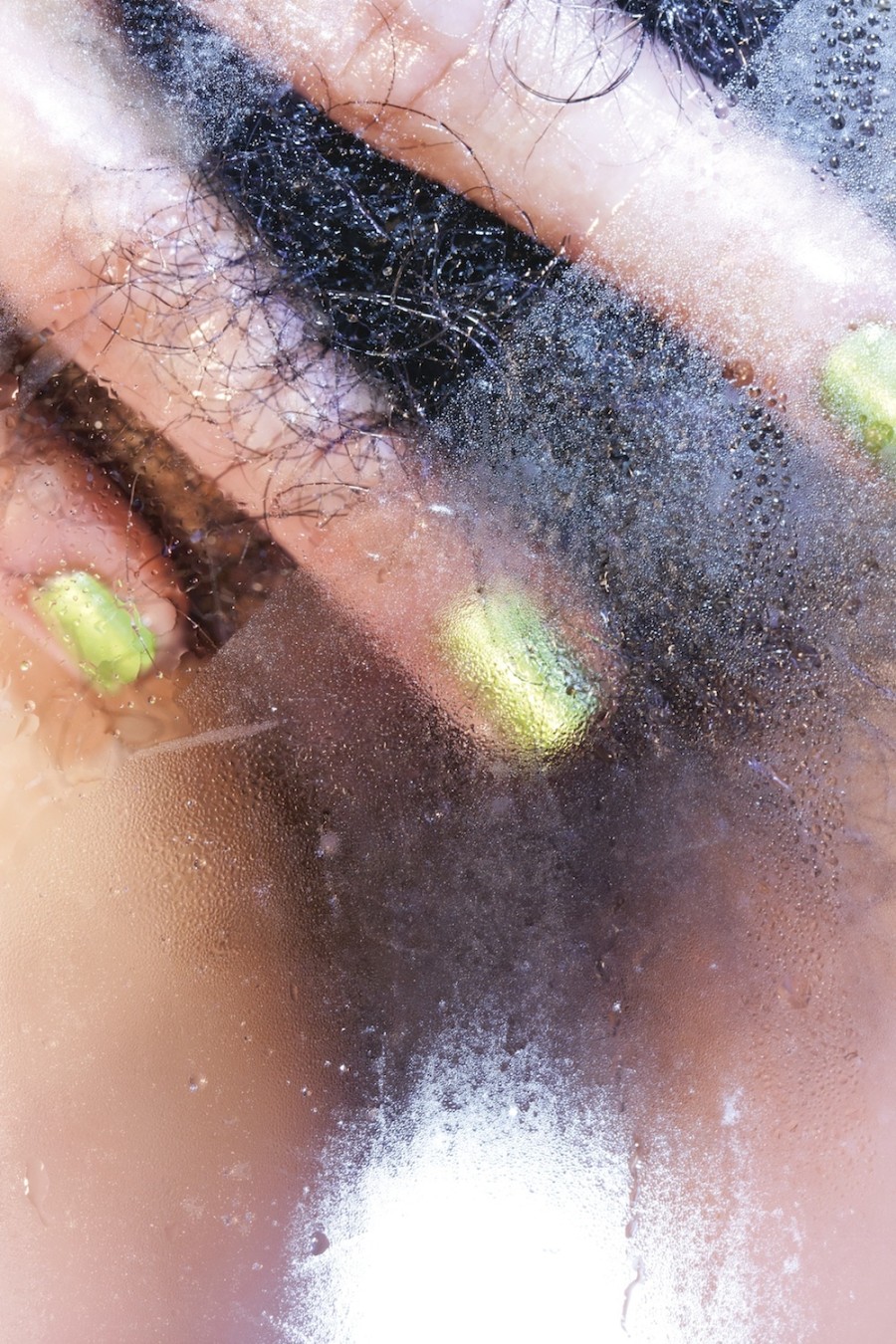
"I think the work of Rupi Kaur and Petra Collins, as well as anyone else who's work is involved in the feminine grotesque, is a backlash to the cultural ideal that is perpetuated on women, especially young women. The culture industry creates these impossible robotic ideals through Photoshopping and editing the human body. I think what Rupi Kaur and others are doing is really kind of a punk rebellion against these images, and it's about time. This type of work is an important counterweight to the images we're inundated with every day."
"Why is everyone still so terrified of vaginas?"
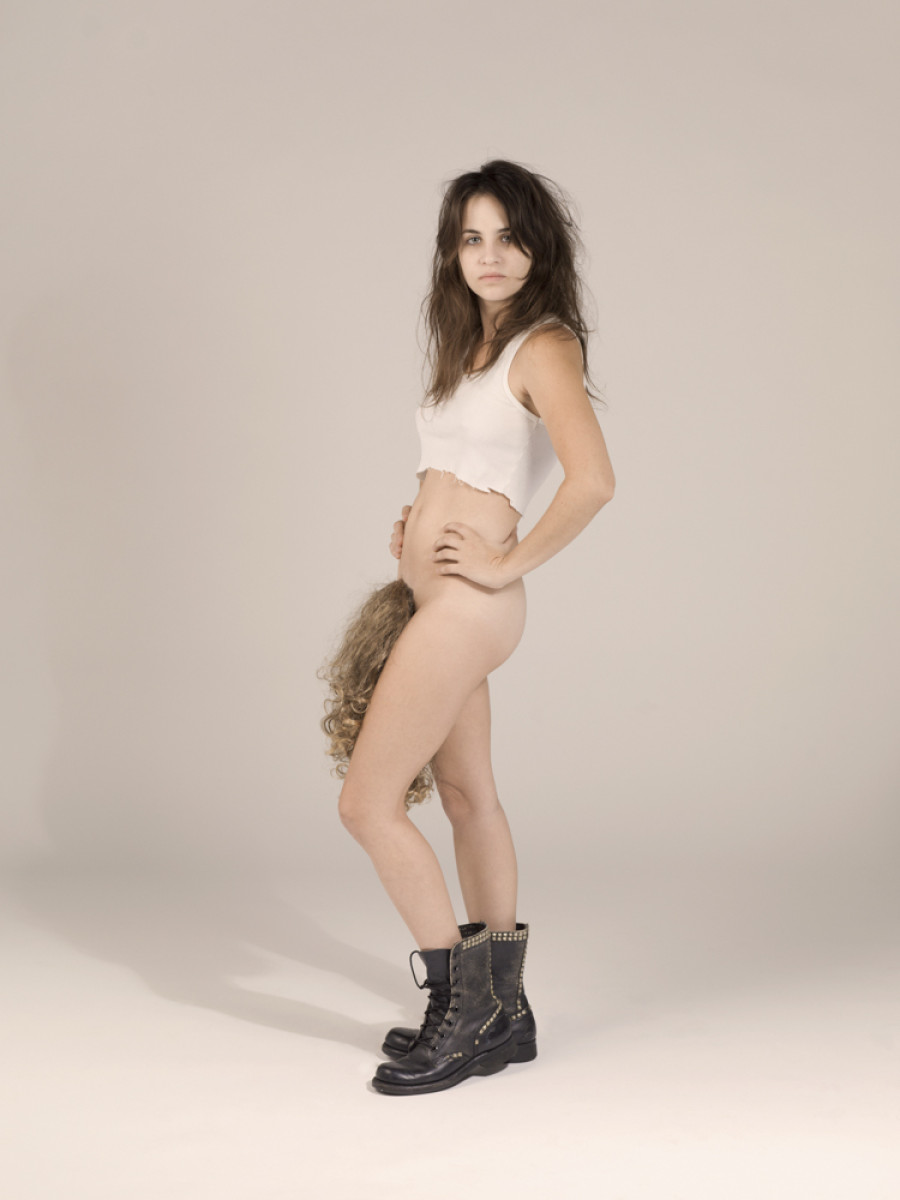
"I've always loved period-themed photographs. I just love having that mutual understanding with another woman of 'holy shit, my body does this, we are superior!' To have that connection with the earth, that natural rhythm -- that's a pretty big fucking deal. These women, like Rupi Kaur, are recognizing that cycle and how important it is and how powerful they are for experiencing it. For Instagram to remove those images is over the effing top -- I've seen blood before, I've definitely seen it on Instagram. How can you censor blood? Because the implication is that it fell out of someone's vagina? Really?? Then maybe you should censor newborn babies, too. Why is everyone still so terrified of vaginas? I hope Rupi fights this, because it's bullshit. And if she needs help, give her my contact info."
"I think the larger scope of the problem comes with the long held taboos of women's bodies and menstruation, seeing them as something dirty we should hide or be ashamed of. The problem is a societal one."
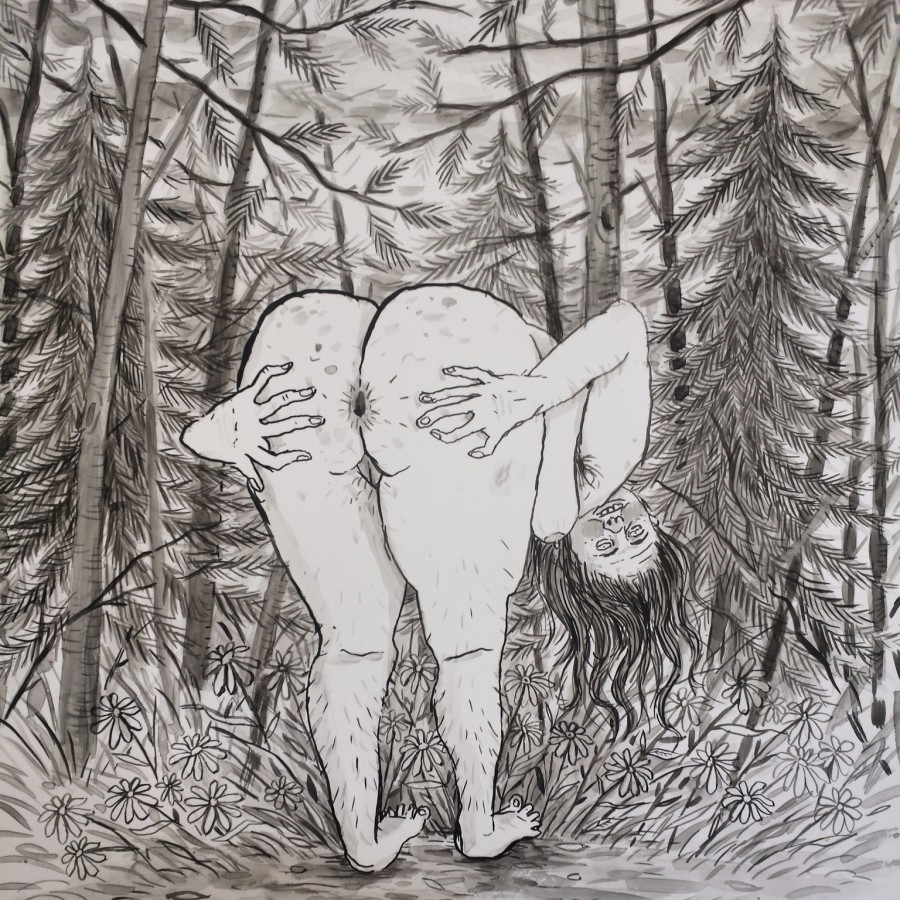
Show Off, 2014 Ink on vellum 12.75” x 11”
"There is a lot of creative freedom for women artists within our often insular art world; some of the most challenging and interesting work that is being made on both large and small scale is being made by women artists, some even using the language of femininity, craft, gender roles and subverting and reclaiming it. It's a powerful and exciting thing to see. [...] It is when images like Rupi and Prabh Kaur's reach the masses that the subjugating and stigmatizing of women is so glaringly obvious and discouraging. The photographs serve as examples reminding women that they have a voice, a vision and a mark to leave, as well as a reminder that they have nowhere to leave it, and no ears to listen. The more that images like Rupi Kaur's cross over with social and mainstream media and the more this conversation is articulated publicly, the more normalized and de-stigmatized the female body will hopefully be."
"Many cultures have envied or demonized this bleeding, which is not of an injury, but rather embodies the power of maternity."
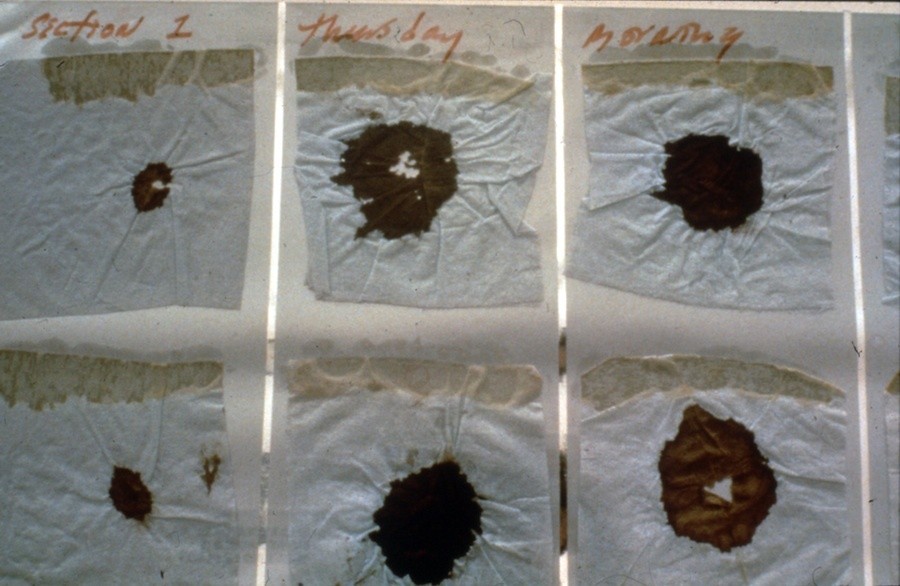
Blood Work Diary (Detail), 1972 Menstrual Blottings on Tissue, Five 29x23” Panels. Photo by Anthony McCall. Courtesy of the Artist.
"'Blood Work Diary' [seen above] was a 1972 sequence of menstrual blottings which established the structural form of a fluid physiological process. Through their repetition I developed a visual continuum which charted the permutation of this bleeding over time. Menstruation is often subject to overflow, noting the commonality of menstrual occurrence, women would tell each other, 'Once again, I’ve just left my mark!' Many cultures have envied or demonized this bleeding, which is not of an injury, but rather embodies the power of maternity. Profound taboos sustain traditions of cultural revulsion, which attempt to make women’s biology the site of shame."
"Perhaps I have become lost in a world so technologically advanced and impersonal that, without me noticing, we reached the point where nobody is born naked anymore."
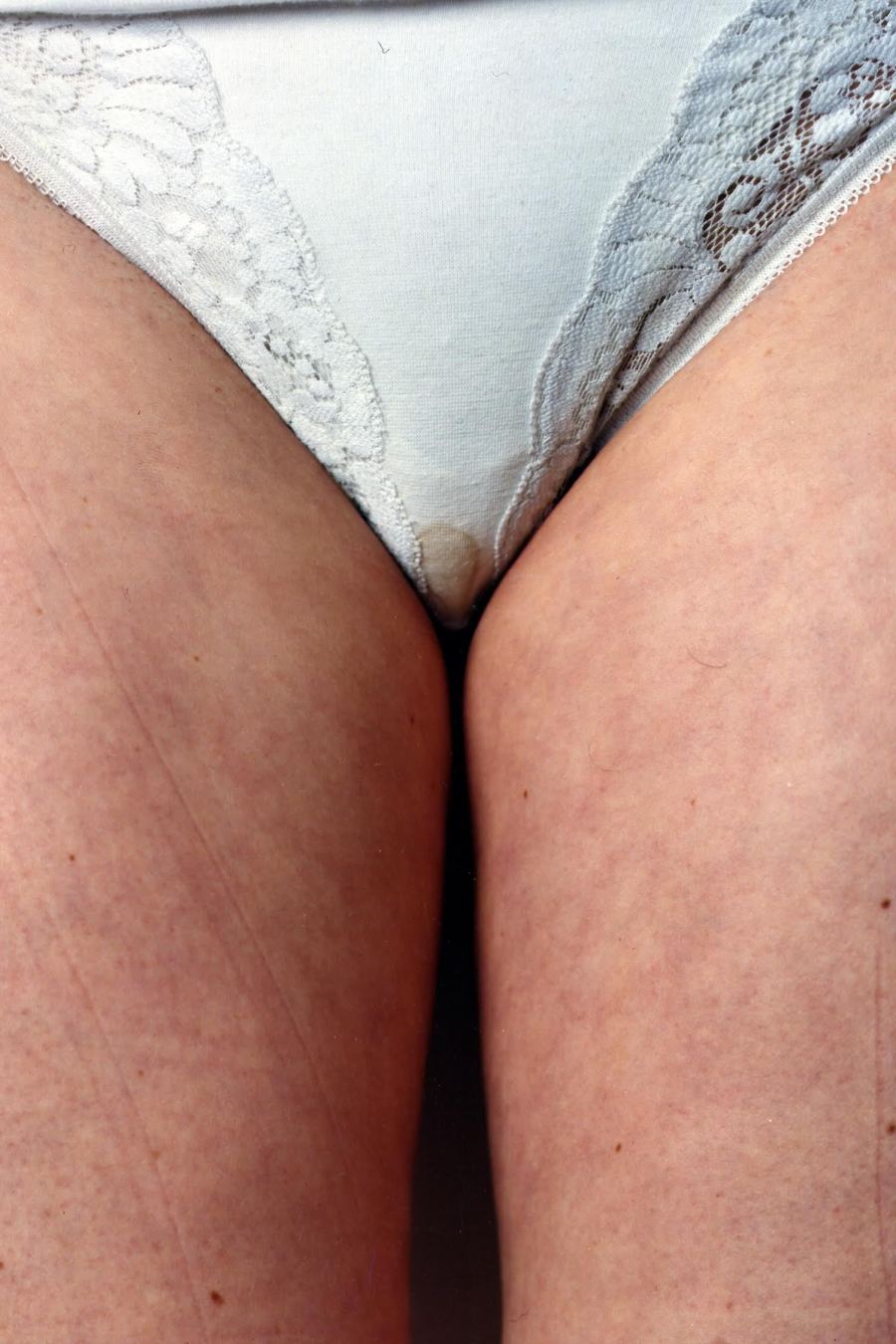
"As [I am] so often censored, flagged and deleted after showing a naked female body -- which for me speaks of nothing more then trust and innocence, humor, play -- the only thing I can add for now is: We are taught there is nothing more normal to watch than executions which look like they are produced by Hollywood's best production teams without blinking an eye, while at the same time we need to be protected from the sight of a nipple, because such a thing can shock us so greatly we might end up on the psychiatric couch. All this just raises one question to me. Perhaps I have become lost in a world so technologically advanced and impersonal that, without me noticing, we reached the point where nobody is born naked anymore."
"I think there is something very powerful about being labeled monstrous. Perhaps an alternative feminist strategy might be to reframe Instagram's censorship as a positive thing -- because it reveals the point at which we exceed the limits of the status quo."
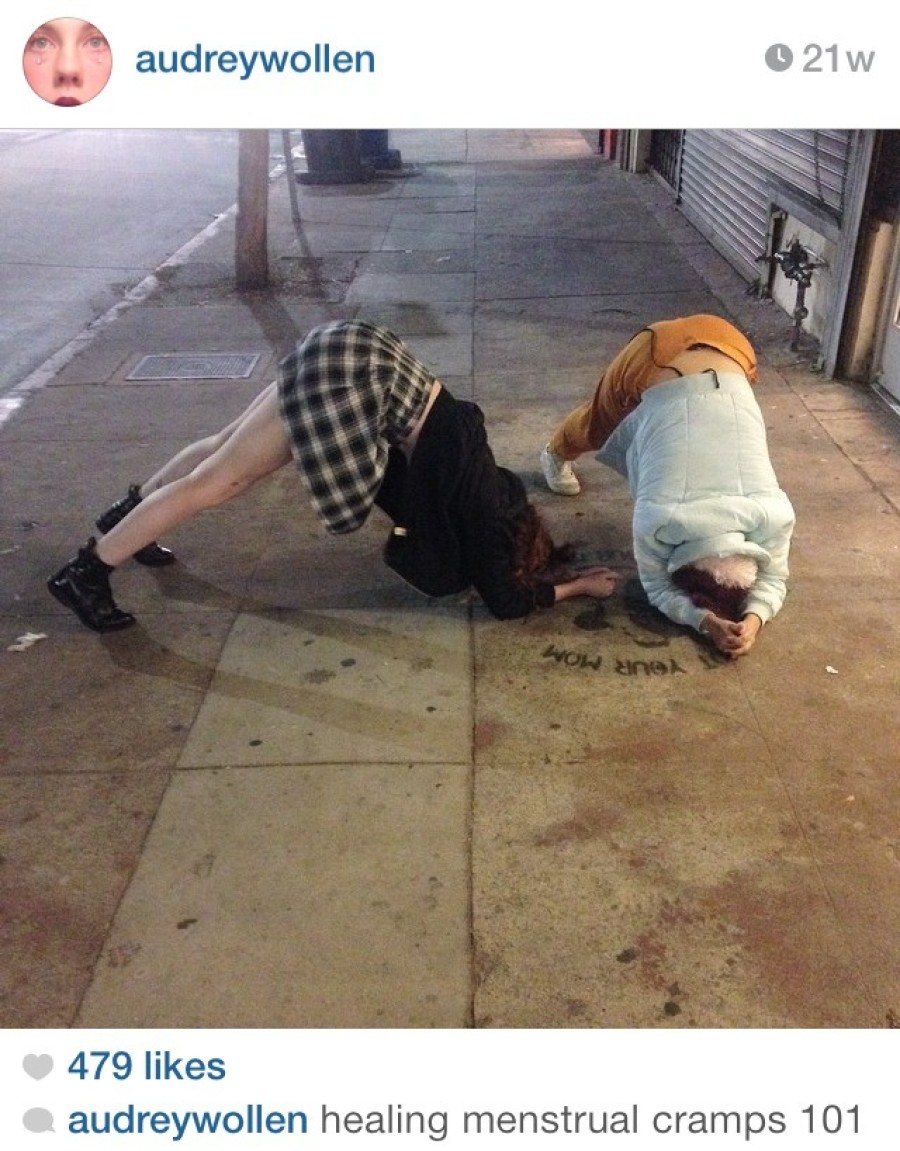
"I think the censorship of certain parts of women's bodies [...] is complicated, because our initial reaction is to insist on the 'naturalness' of those parts, to insist on our own normalcy. We end up begging to be assimilated. But I think there is something very powerful about being labeled monstrous. Perhaps an alternative feminist strategy might be to reframe Instagram's censorship as a positive thing -- because it reveals the point at which we exceed the limits of the status quo. Instagram (and other social media) is an inherently normalizing, policing force and our exclusion from that is a sign that the female body still has the ability to horrify, to disrupt. Our very existence, in its unedited, embodied form, is threatening, and I think that is something to revel in, rather than resist."
"I think my work says better than I."
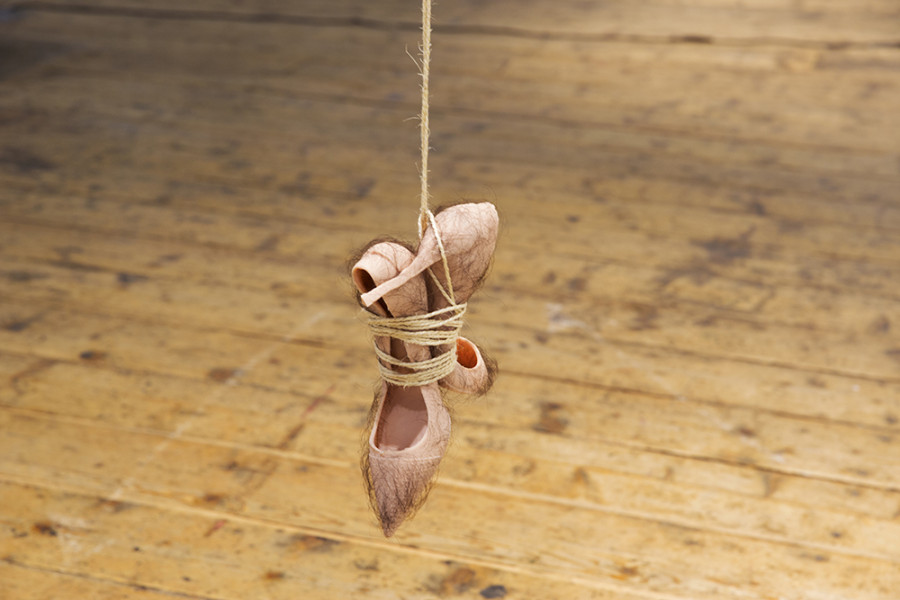
Babe’, 2013, Rubber, human hair, pigment
"People need to keep speaking up about their Facebooks being shut down, or their images being flagged, to encourage others to ask questions about who is deciding what is 'offensive,' and inspire conversations about how that reflects on our society."
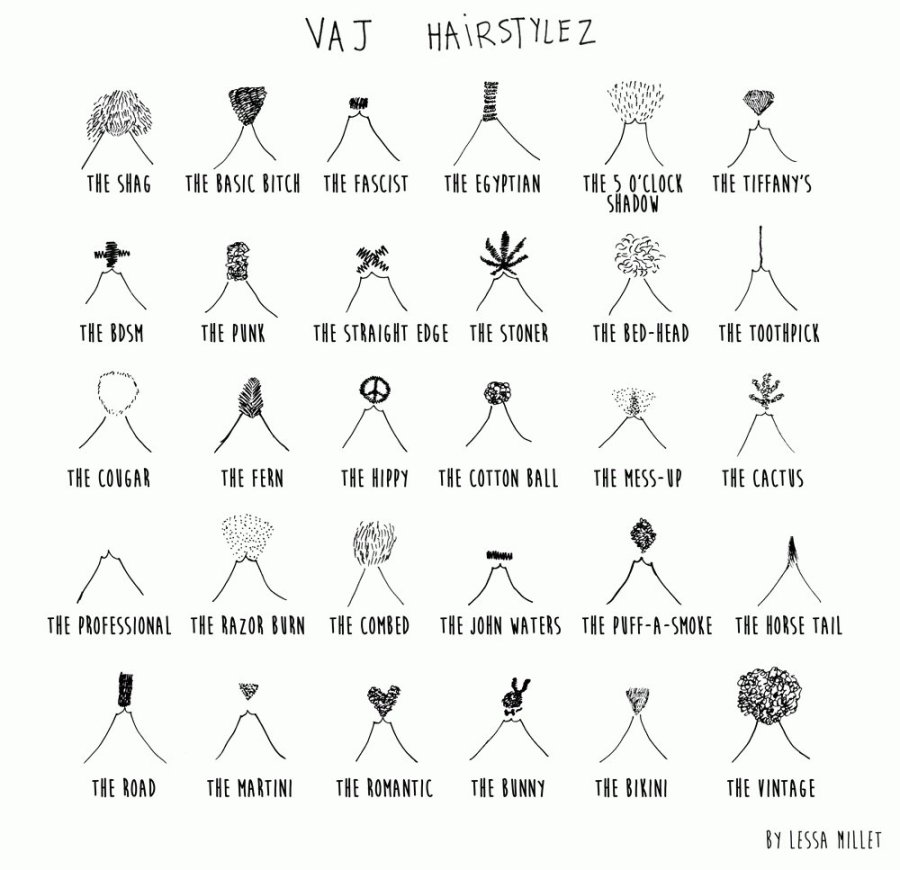
"Both women and art have been censored for centuries. But now, because of the internet -- and the fact that we have access to multiple channels of communication where we can share our thoughts -- we are able to bring attention to who is censoring us and what is being censored. People need to keep speaking up about their Facebooks being shut down, or their images being flagged, to encourage others to ask questions about who is deciding what is 'offensive,' and inspire conversations about how that reflects on our society. To me, one of the fundamental functions of art is precisely that: starting conversations, asking challenging questions, and helping us understand the society and moment we live in. I don’t think censorship is going to disappear, but neither are people going to stop fighting it and standing up for our freedom of expression."
11. Kenya (Robinson) -- as CHEEKY LaSHAE
"That’s how you can tell someone is a feminine. Period. Oh, and birthing a baby, who, not coincidentally, also has a powder named after them, an honor that is shared with foot."
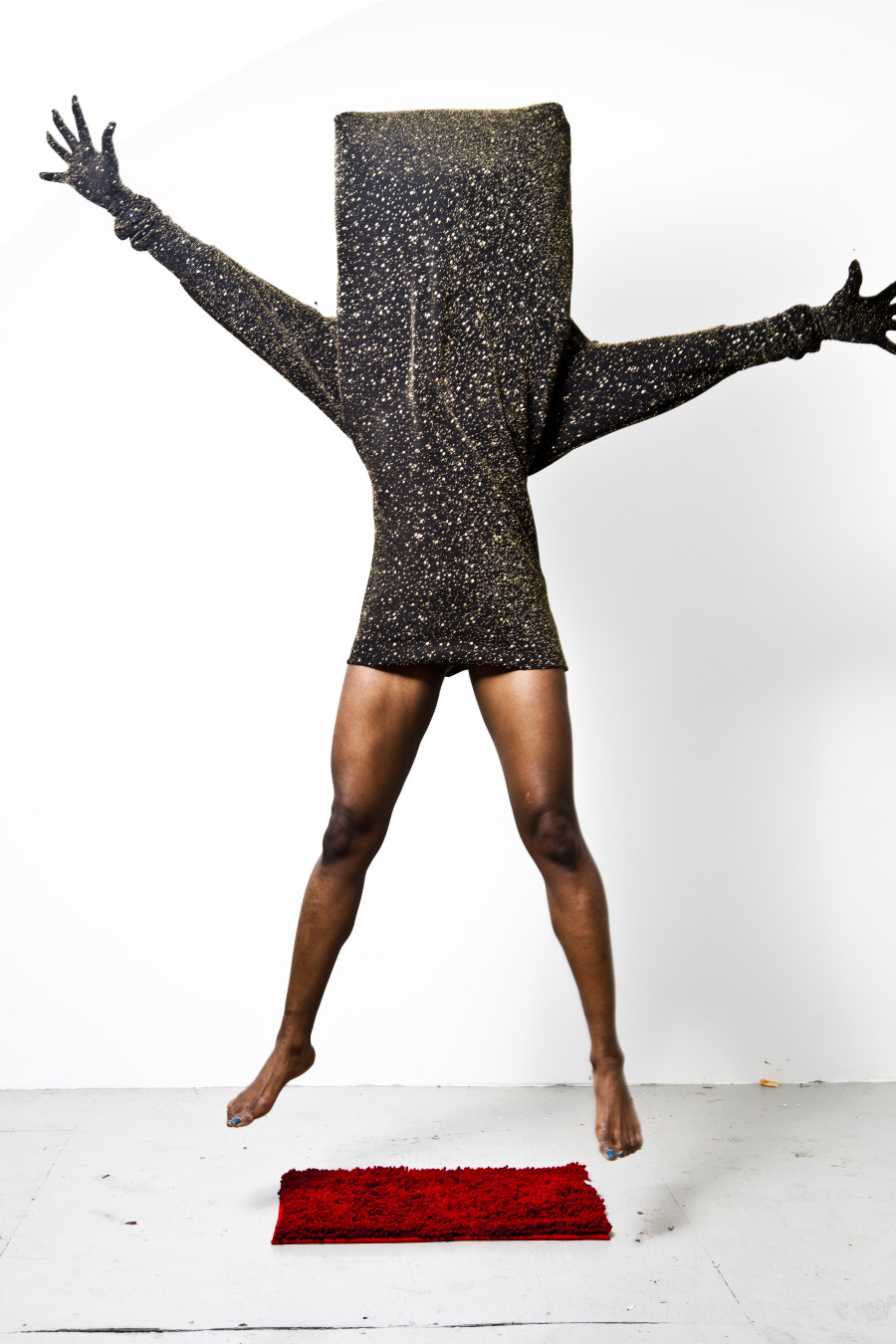
CHEEKY LaSHAE + The Red Bath Mat, Performance at Mike Shultis Studio, Photo by: Jackson Ray Petty, 2014
"I suppose CHEEKY should be up in box about the Instagram reaction to period blood poetics. CHEEKY prefers to turn the focus on itself -- reminiscing about its own menarche -- which actually looked like melted chocolate in the crotch of its pantydraws. Having mistaken those first cramps for diarrhea, made for a temporarily confusing discovery. Fortunately, Mama LaSHAE had prepared young CHEEKY with a toolbox of all things menstruation –- tampons, flightless pads, ibuprofen, vaginal (b)itch cream, disposable douches, moist towelettes, newspaper (for disposal) and, of course, feminine powder -- because CHEEKY was most certainly a feminine now. ‘Cause of the period. That’s how you can tell someone is a feminine. Period. Oh, and birthing a baby, who, not coincidentally, also has a powder named after them, an honor that is shared with foot."
12. Casey Jenkins
"The reality is that no one censors dominant cultures, no one censors the most powerful and prevalent points of view -- they're the ones who censorship panders to and minorities and those less powerful just have to cop it while having their own expressions silenced."
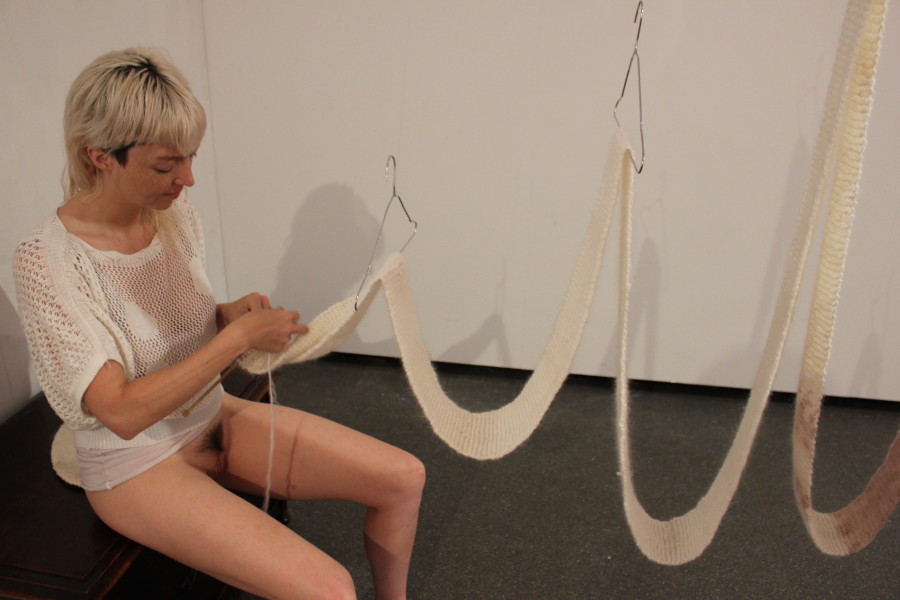
"In theory I'm all for people having the choice to either view or avoid viewing whatever they choose. A whole plethora of things might be triggering and traumatic for people and giving advance notice about the nature of content about to be viewed seems to be a considerate and humane thing to do. There are certainly days when I would rather be prepared before having the visages of either of the leaders of the major political parties in my country slapped in my face, or endless reports about male-dominated sports, all of which I find offensive and depressing. The reality is though that no one censors dominant cultures, no one censors the most powerful and prevalent points of view -- they're the ones who censorship panders to and minorities and those less powerful just have to cop it while having their own expressions silenced.
"All of this just perpetuates and strengthens the positions of already powerful cultural norms. Recently the news report of my 'Casting Off My Womb' performance work, posted to YouTube by TV station SBS2 as 'Vaginal Knitting', had restrictions around it tightened and it's now available for viewing only to those 18 years or older (this is after almost 6.5 million views though so it's probably fair to say that ship has sailed). Most other news reports about the piece had big 'Warning!' banners plastered across them also and I'd be curious to hear exactly what it was that self-appointed censors considered so potentially harmful about the piece -- the fleeting shot of my pubic hair? The stain of my menstrual blood? [...] When artwork is wrapped in a censorship banner people gear themselves up for horror and tend to see what they're primed to, rather than what it actually there."
13. Jenny Sharaf
"Politics aside, this is pretty good marketing on Rupi Kaur's part. People aren't usually writing about poems and period art in the breaking news category."
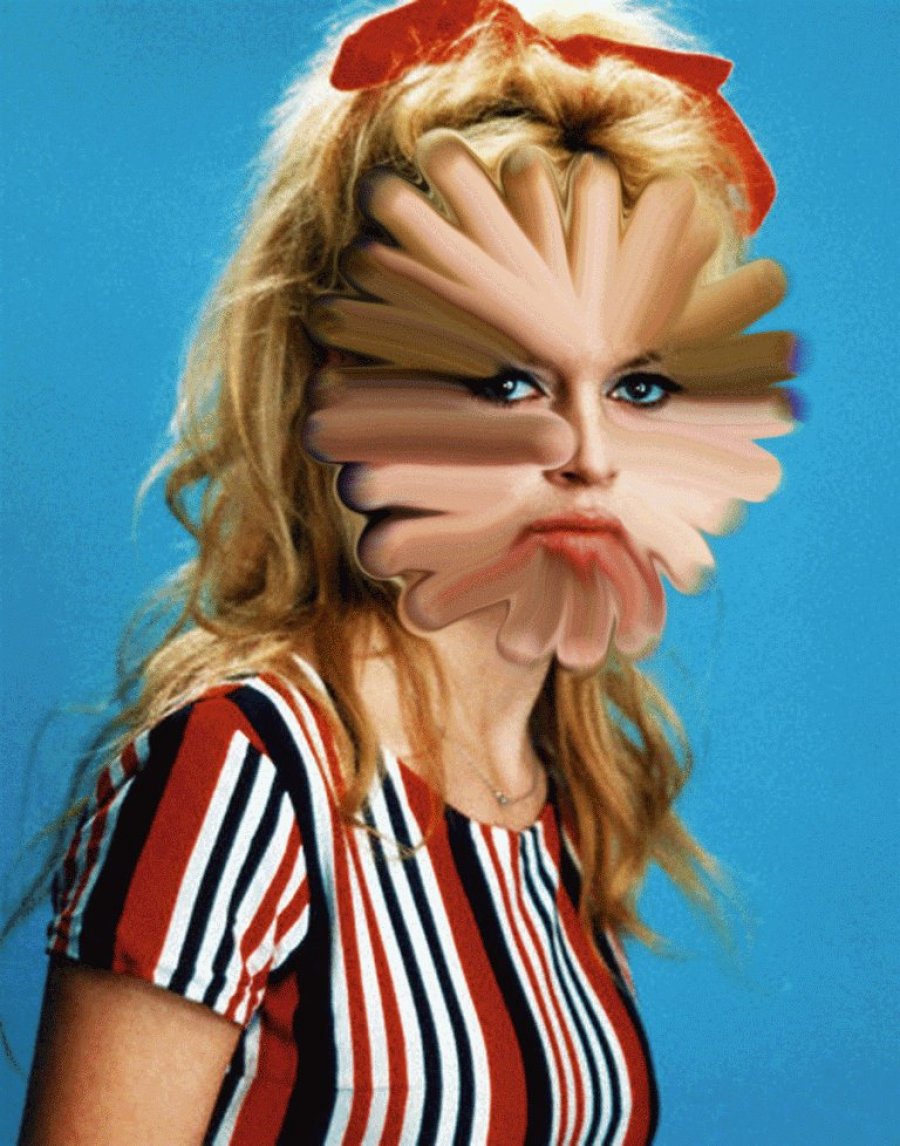
14. Doreen Garner
"The idea of feminine and grotesque in the negative sense existing as a combined term encourages us to despise biological truths regarding physical progress into womanhood which includes pubic hair, stains, menstrual blood, secretions, and other pungent qualities."
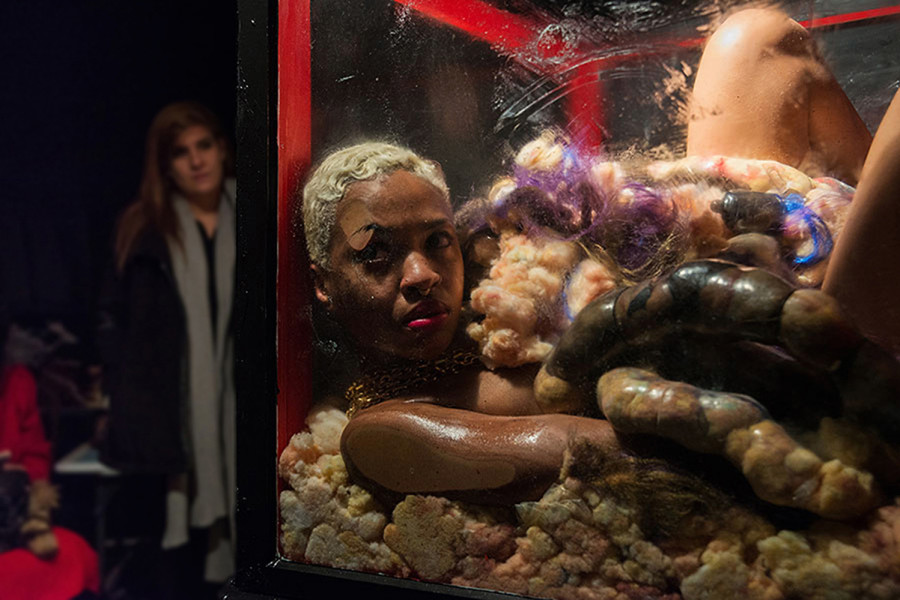
The Observatory, 2014, Video, Hour Performance inside Glass Box
"Originally, grotesque as a 15th century term is a style of elaborate curves and decorative elements of paintings found in the ruins of Roman caves or grottoes. Today we use it to describe qualities of a person place or object that is repulsive, strange or disgusting. Grotesque as a descriptive element functions in a space of perversion which is simultaneously occupied by my creative practice. The feminine grotesque is a term that I am very much confused by as a woman and as an artist. Constructed by White American misogyny, the idea of feminine and grotesque in the negative sense existing as a combined term encourages us to despise biological truths regarding physical progress into womanhood which includes pubic hair, stains, menstrual blood, secretions, and other pungent qualities. All of which coexist with publicly embraced signifiers of beauty."
Related
Before You Go





















